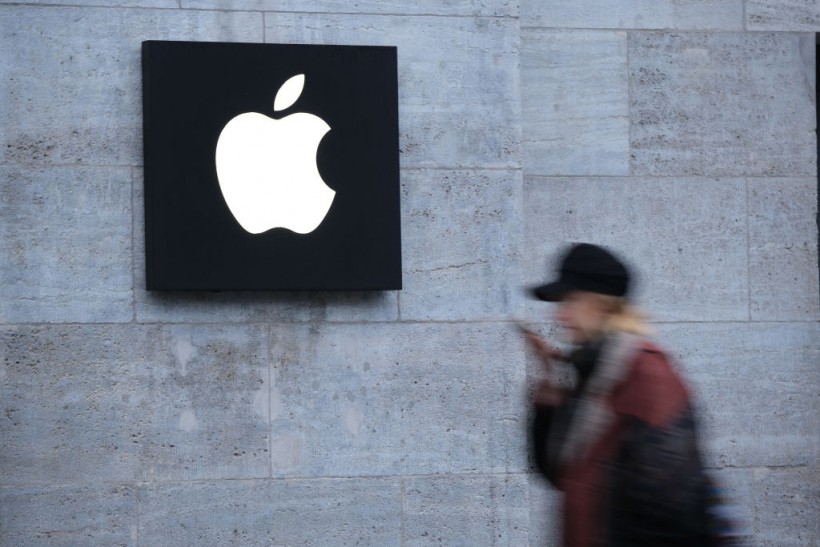An FCC commissioner called for an inquiry into Apple's actions concerning the discontinuation of Beeper Mini. He asserts that the FCC should assess whether Apple's actions, characterized as the degradation of Beeper Mini's functionality, run afoul of the agency's regulations.

(Photo : Sean Gallup/Getty Images)
A woman holding a smartphone walks past the Apple Store on January 4, 2019 in Berlin, Germany.
Call to Investigate Apple
Republican Commissioner Brendan Carr has called upon the Federal Communications Commission (FCC) to investigate Apple's actions surrounding the shutdown of Beeper Mini, a popular app that briefly granted Android users access to iMessage features.
Speaking at the State of the Net Conference, Carr stressed the importance of scrutinizing whether Apple's decision to restrict Beeper Mini functionality violates FCC regulations, particularly those about accessibility for users with disabilities.
According to FCC's Part 14 rules, advanced communication services like iMessage must adhere to accessibility standards.
Commissioner Carr argues that Apple's termination of Beeper Mini might breach FCC regulations prohibiting the installation of network features hindering accessibility. Carr highlights the challenge posed by the low-contrast green bubbles for individuals with visual impairments.
He expressed concerns that Apple's adjustments to iMessage rendered Beeper Mini non-functional, prompting him to suggest an FCC inquiry into whether Apple's actions compromised the accessibility and usability of Beeper Mini in violation of FCC regulations.
Also Read: Beeper Will Not Respond If Apple Blocks Beeper Mini
Carr's concerns extend beyond the Beeper Mini situation to encompass Apple's influence in augmented and virtual reality realms, as reported by The Verge.
He raised issues regarding Apple's practice of creating closed ecosystems around its products and services, suggesting potential drawbacks if Apple continues to prioritize its proprietary technologies over competitors'.
Carr emphasized the importance of fair treatment in the tech landscape to prevent the degradation of competitive offerings.
Shutting Down Beeper Mini
Beeper Mini garnered attention last year for bridging the gap between Android and iMessage, offering Android users coveted features such as blue message bubbles and seamless media sharing.
In the weeks leading up to Christmas, Beeper Mini encountered significant hurdles, limiting its availability to a select group of determined users.
The workaround involved complex procedures, requiring the use of an outdated jailbroken iPhone connected to Wi-Fi continuously, in conjunction with a Mac or Linux computer for configuration.
While many dedicated Android users were willing to adopt the workaround, Apple had other intentions. Individuals who followed the prescribed steps discovered their Mac devices were labeled as "spam" and were unable to utilize iMessage.
Although a few of the banned accounts were restored after inquiries, Beeper proactively disabled the feature allowing users to initiate new iMessage connections through Beeper Cloud.
Apple has promised to support RCS messaging in the future. However, it's unclear how much they'll support it, and it won't fix the issue with green and blue chat bubbles. This ongoing change in messaging compatibility is shaping the competition between tech giants.
Related Article: Beeper Mini Finally Shuts Down on Android Following Apple Ban









